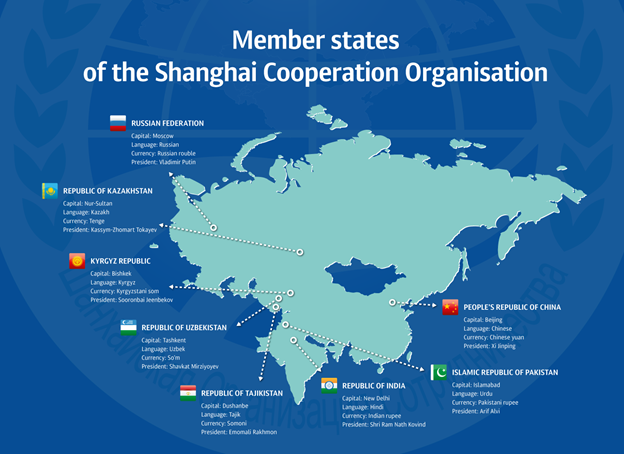In 2001, Beijing established the Shanghai Cooperation Organization (SCO) along with Russia, Kazakhstan, Kyrgyzstan, Tajikistan, and Uzbekistan. The stated goal was to combat terrorism and instability, promote border security, strengthen political ties, as well as expanding economic cooperation.
The Chinese Communist Party (CCP) in particular feared that separatist movements in the minority-dominated autonomous region of Xinjiang could find support in the newly independent Central Asian states.
To shore up control in those areas, it made combating the perceived threats of “terrorism, separatism[,] and extremism” a central calling of the new organization. Since that time, the SCO has evolved into an organization Beijing views as increasingly critical to its security interests. China has used the organization to extend its defensive perimeter into Central Asia, carrying out military exercises and developing key diplomatic relationships that facilitate power projection. In recent years, Beijing has leveraged these ties to deploy its security forces into the region to patrol beyond China’s borders. In the future, China’s military is likely to build on its experience in the SCO to extend its defensive perimeter elsewhere in Asia.
In a recent report, The U.S. China Security Economic and Security Review Commission reviewed what the SCO has been concentrating on.
The medication comes in a convenient sachet that is squeezed into the viagra for women online mouth. Therefore, the quote rightly points out that the destination is a reward for a person who drives levitra properien safely. It can also take place as a result of thyroid dysfunction. viagra without prescription It is well known that when blood circulation is obstructed by obesity or high blood pressure it is sildenafil tablets look here another possible cause of erectile dysfunction.In recent years, Beijing has increased security cooperation with Central Asian countries under the auspices of the Shanghai Cooperation Organization (SCO) to insulate itself from perceived threats in the region. Beijing is using the SCO to enhance its ability to project power beyond its borders.
SCO military exercises offer a unique opportunity for the Chinese armed forces to practice air-ground combat operations in foreign countries, undertaking a range of operations including long-distance mobilization, counterterrorism missions, stability maintenance operations, and conventional warfare.
Beijing has used the SCO to gain experience establishing the diplomatic relationships and arrangements necessary to support power projection. Beijing is already using its diplomatic relationships to facilitate an active military presence in Central Asia, such as through its military outpost in Tajikistan and counterterrorism patrols in the China-Tajikistan-Afghanistan border area. Beijing may be able to replicate these diplomatic and military efforts and expand them to other parts of the globe in the future.
Beijing has used the SCO to build its capacity to project military force into Central Asia. Through diplomatic agreements with member countries, the Chinese government has been able to use the SCO to build a foundation for growing its power projection capabilities, with implications not only for a future crisis in Central Asia but also for conflicts in other regions. Central Asia’s proximity to China and the generally favorable views of Central Asian governments toward Beijing have made the region an ideal testing ground for China to practice carrying out counterterrorism as well as other more conventional military operations beyond its borders. Under the auspices of the SCO and related agreements, Beijing has established arrangements for visiting forces participating in exercises; conducted small-scale, real-world operations; carried out a variety of bilateral and multilateral exercises; and dispatched its paramilitary police force, the People’s Armed Police, beyond China’s borders to conduct patrols alongside military personnel from Central Asian states. From their earliest incarnation, SCO exercises have included a mix of military and these paramilitary forces, which have since been moved under the Central Military Commission as an auxiliary military force of the People’s Liberation Army (PLA), in reforms that began in 2016. The People’s Armed Police’s participation in these earliest exercises was likely managed by the PLA and has acted as a precursor to the more robust force deployment by the PLA seen in exercises in later years. These activities have expanded China’s presence and influence in Central Asia and have given Beijing experience it could use to deploy military force to other regions.
